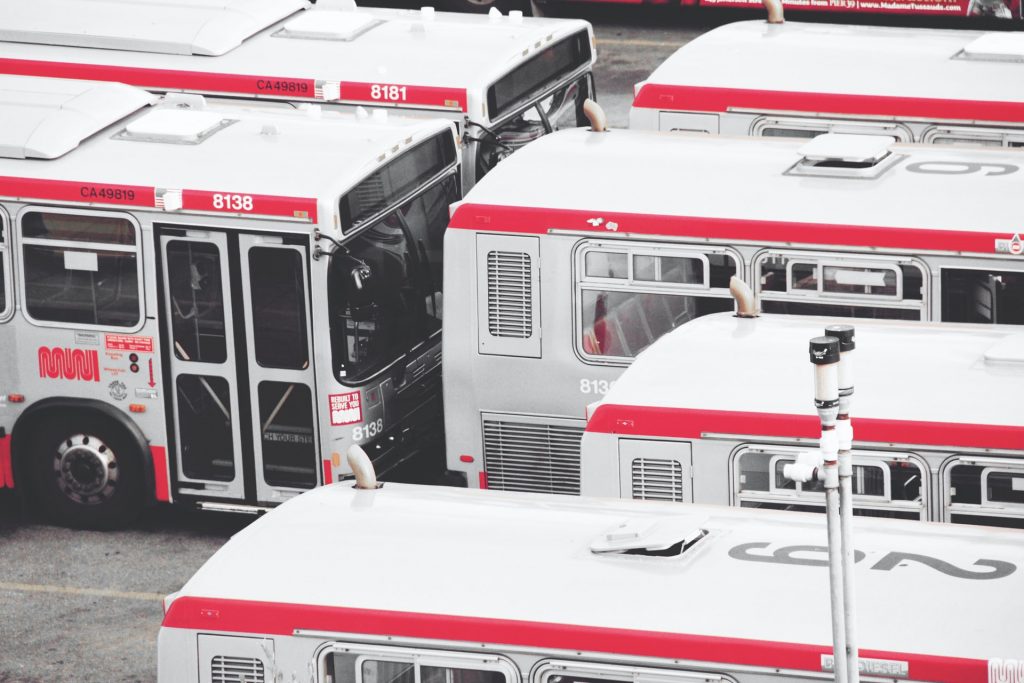
This content overview helps you nagivate through this toolkit. Note that many of the posts listed below again include a set of resources (not shown below).
To start with, this module includes a technology overview, a sector guide for bus system transformation as well as a collection of case studies from GIZ and others.
1.1 Overview Bus Fleet Renewal Toolkit
1.2 Technology Overview
1.3 Guidance Document Sector Transformation
1.4 GIZ Case Studies
1.5 European Case Studies
In order for a project to be successful, project managers have to be handle factors such as key stakeholders, suitable steering structures or indicators and project objectives. This module offers project managers general guidance on these success factors as well as strategy advice and case studies
2.1 Stakeholder Engagement
2.2 Setting up a Steering Structure
2.3 Standard Indicators
2.4 Project Presentations
2.5 Process Steps of Bus Fleet Projects
2.6 Key Steps for the Introduction of E-Buses
This module provides knowledge to assess barriers and risks of bus modernisation projects. In addition, it gives guidance on regulatory and commercials aspects like operational models, public procurement schemes and technical standards.
3.1 Barrier Analysis
3.2 Technology Risk Categories
3.3 Options for Operational Models
3.4 Franchise Consolidation, Contracting and KPIs
3.5 Regulations and Standards for Clean Buses
3.6 Contract Models for Public Transport Services
3.7 Increasing Ambition to Mitigate Greenhouse Gases in the Transport Sector through Electro-Mobility
3.8 New Energy Buses in China
3.9 Reforming the (semi-)informal Minibus System in the Philippines
3.10 Zero Emission Bus Charging Systems
Knowledge about financing is crucial for the success of every bus fleet renewal project. This module therefore aims at overcoming financial barriers by giving guidance on different financing options and providing specific tools and best practices for financing a busfleet renewal.
4.1 Economic and Financial Evaluation of E-Buses in Colombia
4.2 Financial Mechanisms for Electric Bus Adoption
4.3 Best-Practice-Financing
4.4 Financial and Economic Impact Analysis
4.5 Terms of Reference for Financial Analysis Bus Technologies
4.6 Funding and Financing Mechanisms for Sustainable Mobility
4.7 E-Bus Global Tool
The assessment of the impact of the fleet renewal is an important step towards the successful implementation. Several tools, studies and best practice examples of MRV are included in this module to successfully monitor the implementation of the project.
5.1 Guidance on Monitoring of City Bus Operations
5.2 MRV Guidance
5.3 Best-Practice-Financing
5.4 Environmental Impact Assessment Tool
5.5 New guide to structure MRV scheme for e-buses
Finally, this chapter includes a diverse collection of study tours and further training courses from different regions and organizations specifically designed to electromobility and bus fleet renewals to foster capacity development in this subject.
6.1 Capacity Development Strategies
6.2 e-mobilogues
6.3 Zero-Emission Bus Seminars from Latin America
6.4 Overview Trainings
6.5 Study Tour and Tourguide Electric Mobility
6.6 Zero-Emission Bus Resources from Asia
6.7 Training Needs Assessment for Electric Buses in India
6.8 Case studies from Asia and Latin America
 Photo by Giorgio Trovato on Unsplash
Photo by Giorgio Trovato on Unsplash
Friedel Sehlleier
friedel.sehlleier@giz.deVisit profile
You are currently viewing a placeholder content from X. To access the actual content, click the button below. Please note that doing so will share data with third-party providers.
More Information